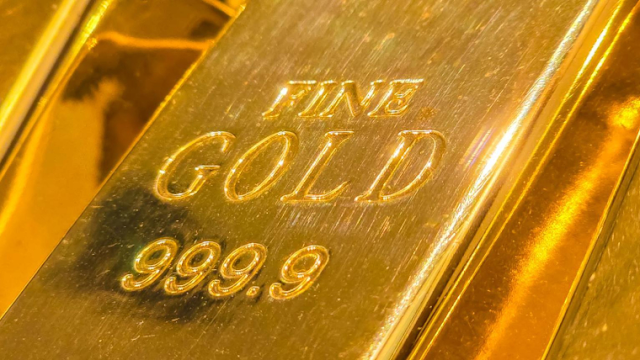Une vue contrarienne sur le devenir de l'euro
Depuis la crise, je me suis trouvé en contradiction avec beaucoup de bloggers américains qui annonçaient les pires choses concernant l'avenir de l'euro , y compris sa disparition. Ce sont des blogger qui ont souvent été corrects à propos de la hausse de l'or depuis des années, mais qui à mon avis méconnaissent la volonté politique en faveur de l'euro sur notre continent.
Tout en constatant la dévalorisation de toutes les monnaies papier (l'euro comme le dollar) je pense personnellement que la devise euro ne risque pas de disparaître de sitôt.
Tout en constatant la dévalorisation de toutes les monnaies papier (l'euro comme le dollar) je pense personnellement que la devise euro ne risque pas de disparaître de sitôt.
Voici l'avis "contrarien" (vu du point de vue "mainstream") de John Dessauer, qui donnent de bons arguments.
Je pense comme lui que même si l'euro baisse il ne disparaitra pour autant. On pourrait même dire, au contraire, car sa dévaluation augmente ses perspectives économiques.
D'ailleurs est-ce que les allemands n'ont pas été les premiers bénéficiaires de la "crise" de l'euro ?
Voici l'interview dans MarketWatch :
CHAPEL HILL, N.C. (MarketWatch) — Concern about the fate of the euro is disrupting the markets yet again. One of the triggers this time around: A threat from Moody’s that it might downgrade Portugal’s debt.
Yet a veteran observer of the European economy is advising clients not to get carried away with forecasts of doom and gloom. He is John Dessauer, who in the 1970s worked for a multinational bank in Switzerland and who, since the decades since then, has been a money manager in this country.Another reason to pay attention to his views: In July, when I last checked in with Dessauer, he was in the process of modifying his previously bearish views about the euro — and that he was “feeling more positive about the euro’s prospects.” Since then the euro has appreciated smartly against the U.S. dollar (EURUSD 1.3529, +0.0059, +0.4379%), rising from $1.26 at the time of my July column to $1.35 today. ( Read my Jul. 7, 2010, column.)
What follows are Dessauer’s responses to the questions I posed to him earlier this week:
How do you judge the euro’s prospects in light of recent developments?
I think that the euro’s prospects are better than many commentators think they are. One very encouraging straw in the wind was Estonia’s decision at the beginning of the year to join the European Monetary Union. Why would they want to do that, if the euro in fact were doomed?
Is that the only piece of good news right now for the euro?
No, there’s more. I’m also impressed by investors’ apparent behavior towards the various European countries in danger of default. Much of the money that those investors have been withdrawing from those countries has been shifted to banks in other European countries, such as Germany and France. As a result, not as much money has left the euro region as we might otherwise have expected.
An analogy might be to what happens in the U.S. when investors pull money from a particular problem bank and deposit it in another U.S. bank. That transaction has no impact on the dollar, of course; and we’re seeing something similar in Europe right now.
Is China supporting the euro by shifting large amounts of their dollar reserves into euro-denominated assets?
Though this is a story that has gained some credence recently, I tend to discount it. As best as I can tell, China is not reducing its dollar-denominated reserves in any big way. And I predict that it will continue to heavily buy U.S. government debt.
One thing that China can do, and increasingly is doing, is to reduce the average maturity of the U.S. government debt that it holds. By doing so, China ups the pressure it puts on the U.S. government — since this increases the amount of debt that the Treasury must refinance in the near future. It’s a shrewd move on China’s part, and helps to explain much of the backdrop and context of the visit to Washington of China’s President Hu Jintao.
Are you therefore bullish on the euro?
I am bullish to the extent that I think that the euro will survive. But that doesn’t necessarily mean that the euro’s value will appreciate in U.S. dollar terms. I believe that the dollar, flawed as it is, is nevertheless the least damaged of the major currencies. I think one of the big surprises of 2011 will be a markedly stronger U.S. dollar.
